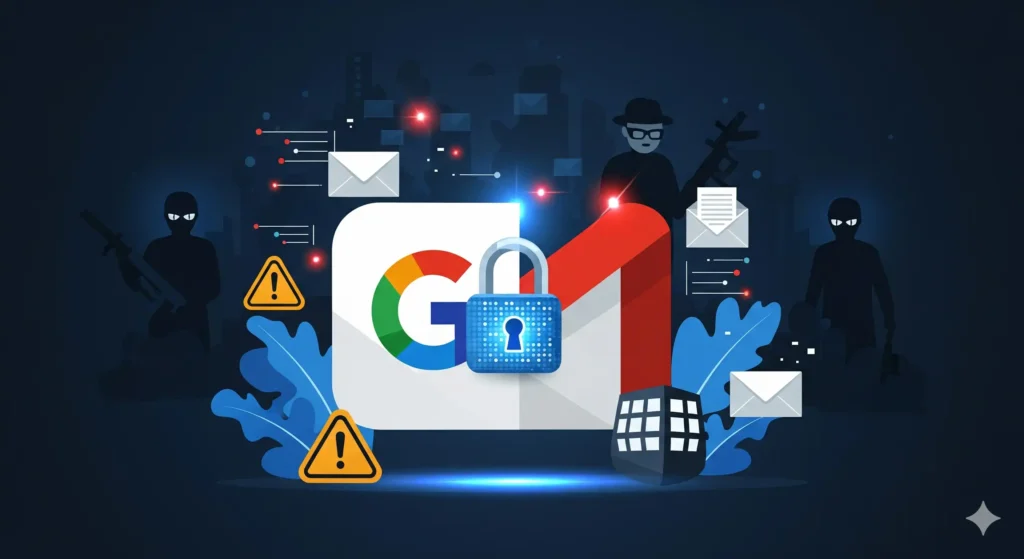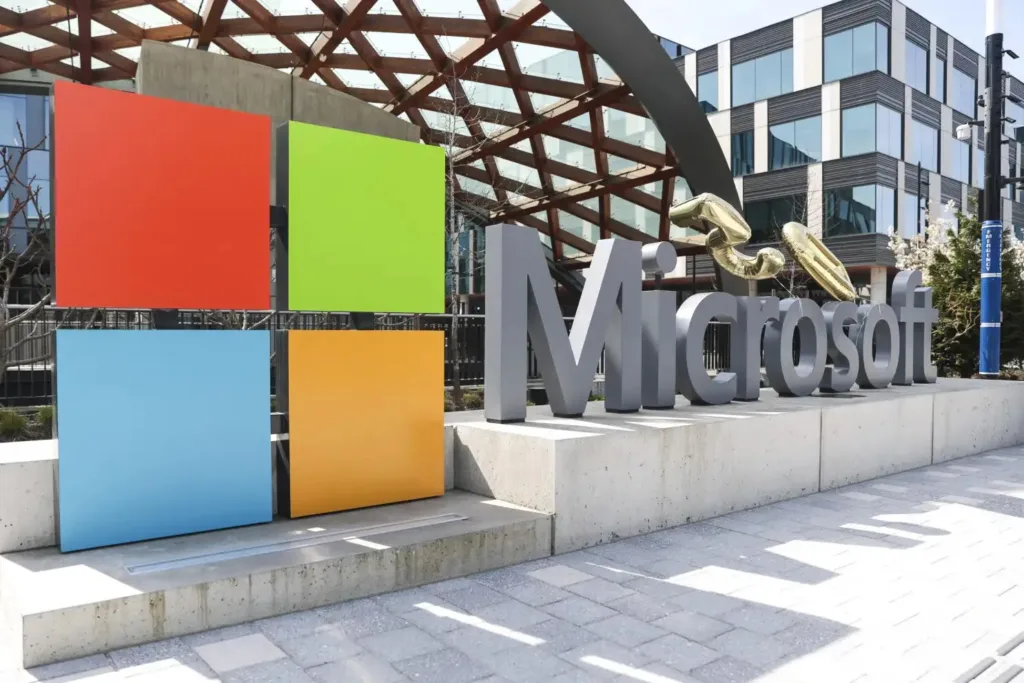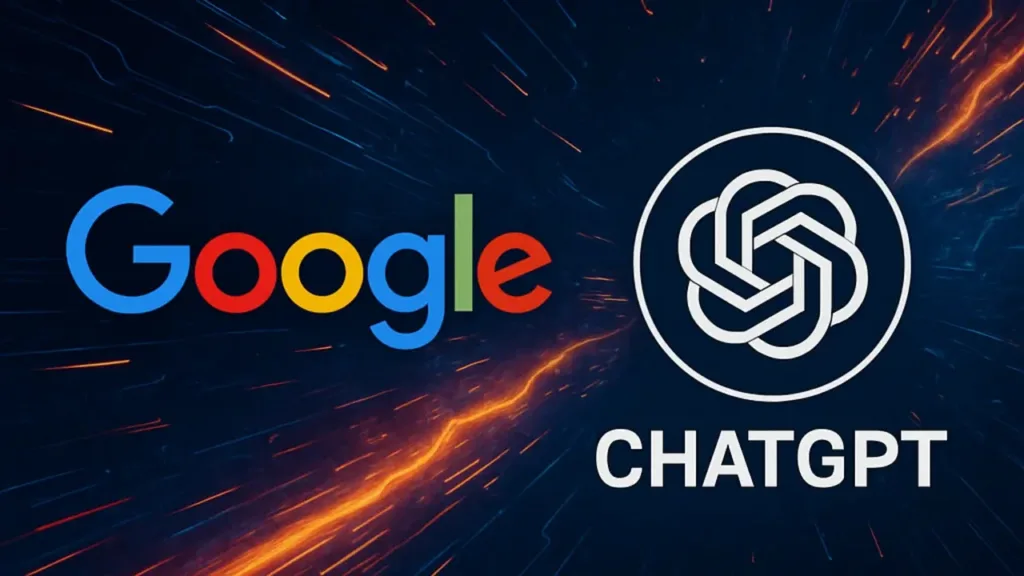In the past few days, headlines about a “massive Gmail data breach” have created panic among millions of users worldwide. Social media and some news outlets suggested that billions of Gmail accounts were compromised, urging people to reset their passwords immediately.
But here’s the reality: Gmail itself has not been hacked. Instead, hackers managed to break into a third-party system connected to Google, and they are now using that information to launch convincing scams. So while your Gmail inbox is safe, the real danger lies in phishing and fraud attempts that may follow.

🔑 Key Points
- ✔️ A hacker group called ShinyHunters breached a Salesforce system used by Google.
- ✔️ Data exposed includes business contact details like emails, phone numbers, and company names.
- ✔️ No Gmail inboxes, passwords, or sensitive personal data were leaked.
- ✔️ Scammers are exploiting the data to launch phishing emails and fake support calls.
- ✔️ Google has clarified there is no “major Gmail hack” but urges users to strengthen account security.
What Actually Happened
The attack was carried out by ShinyHunters, a well-known hacking group responsible for several high-profile breaches in the past. Instead of targeting Gmail directly, they tricked a Salesforce employee into installing malware through social engineering. This gave them access to Google’s business-related customer data stored in Salesforce.
The stolen information included company names, email addresses, phone numbers, and internal notes—mostly linked to Google’s business and advertising partners. Importantly, no Gmail user passwords or inbox contents were exposed.
Why the News Got Confusing
The moment “Google” and “data breach” appear in the same sentence, panic spreads quickly. Some reports exaggerated the event, suggesting Gmail itself was compromised. This forced Google to issue clarifications.
The company stressed that Gmail and its core systems remain secure, and its existing protections continue to block over 99.9% of spam, phishing, and malware attempts. However, Google did confirm that scammers are trying to exploit the stolen data by impersonating the company in fraudulent messages.
The Real Risk for Gmail Users
While your Gmail inbox is safe, the fallout from this breach is serious. With business contact information in hand, hackers are crafting highly convincing phishing emails and fake phone calls (vishing).
For example, you might get an email that looks like it’s from Google, asking you to reset your account or verify your login. Or you may receive a call from someone claiming to be Google support, urging you to share a verification code.
In India, this risk is even higher. Many first-time internet users may not recognize phishing tactics, making them easy targets for scammers. With Gmail being the most widely used email service in the country, millions could be exposed to such fraud attempts.
Google’s Official Response
Google has been quick to downplay exaggerated claims. The company confirmed that:
- Gmail accounts, passwords, and inboxes remain safe.
- No mass security alert was issued to all Gmail users, despite what some reports claimed.
- However, Google has encouraged users to strengthen account security by updating passwords, enabling two-factor authentication, and performing a Security Checkup.
Google also reminded users of a key point: it will never call you to resolve account issues. If you get such a call, it’s a scam.
🔎 Read more
What You Should Do
Even if your Gmail wasn’t hacked, this is a good time to refresh your security practices:
- Change your Gmail password – Use a strong and unique password that you don’t reuse anywhere else.
- Enable two-factor authentication – Prefer app-based authentication or passkeys instead of SMS codes.
- Do a Security Checkup – Google’s built-in tool can show suspicious logins, recovery settings, and connected apps.
- Stay alert for phishing and fake calls – Never share OTPs, verification codes, or login details.
- Educate family and colleagues – Many scams succeed because victims simply aren’t aware.
Why This Matters
This incident highlights an important truth: hackers don’t always need to break into Gmail or steal your password. Instead, they often exploit human errors and weaknesses in connected systems like Salesforce. Once they have some information, they can weaponize it through scams.
For global users—and especially in India where Gmail is the backbone of personal and business communication—this is a wake-up call. Even if your account wasn’t directly hacked, you could still be a target.
Conclusion
So, was Gmail hacked in 2025? No. Your emails and passwords are safe. But hackers did steal business contact data from a system connected to Google, and they are already using it to launch phishing and scam attempts.
The good news: staying safe is simple. Update your password, turn on two-factor authentication, and stay cautious with unexpected calls or emails. Scammers rely on panic and trust—don’t give them either.



